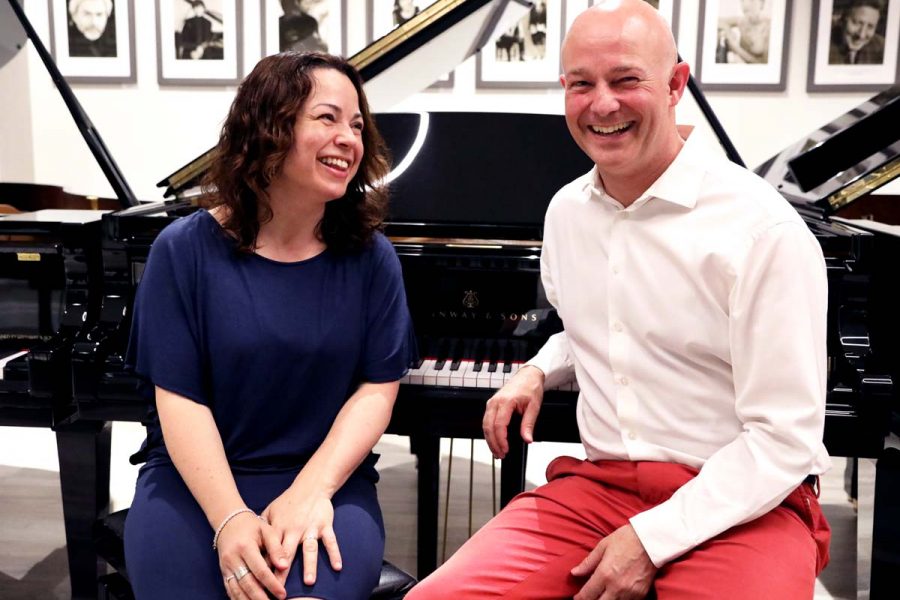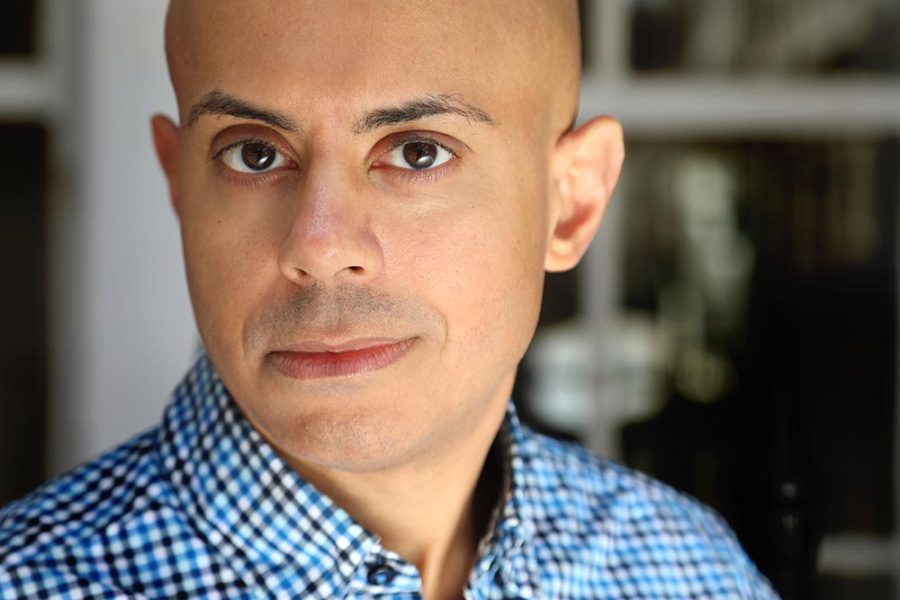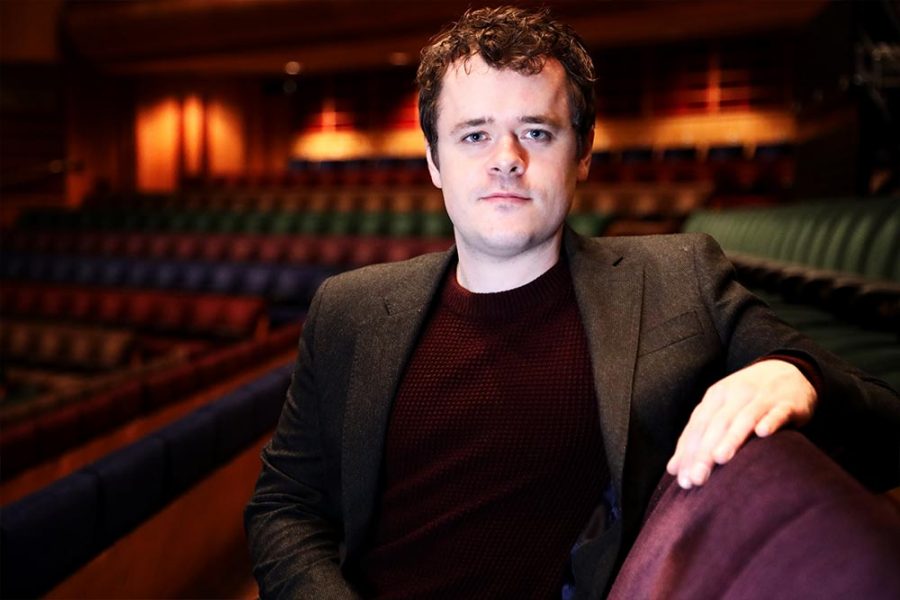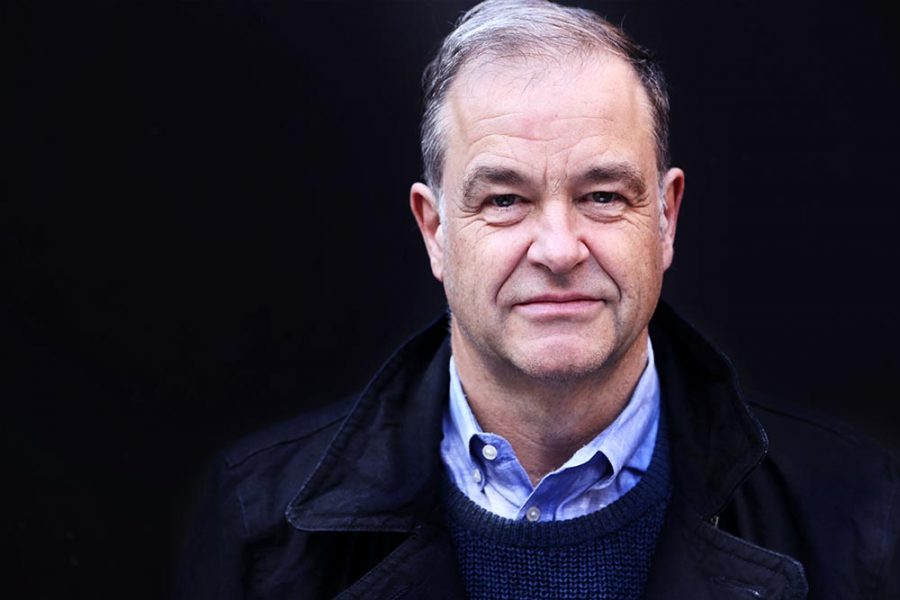Theme and Variation: Iain Burnside

April 2016
Words by
Emer Nestor
Photos by
Frances Marshall
Iain Burnside enjoys a wonderfully diverse career as a teacher, pianist, adjudicator, Sony award-winning broadcaster, programmer, and writer. The Glaswegian has performed in recital with many of the world’s leading singers and has lent his talents to a plethora of critically-acclaimed recordings of works by Schubert, Debussy, Parry, Rachmaninoff, Ireland, Butterworth, Schoenberg, Britten, Finzi, Vaughan Williams, Copland, and Judith Weir, among others.
Burnside recently turned his hand to writing for theatre with a trio of immensely successful and innovative pieces. A Soldier and a Maker, based on the life of Ivor Gurney, was performed at the Barbican Centre and the Cheltenham Festival. It was also broadcast on Drama on 3 as part of the BBC’s World War One season. Journeying Boys, developed in association with the Royal College of Music, was performed in November 2013 in the Milton Court Theatre. Why does the Queen die? received its premiere at the Oxford Lieder Festival in October 2014. Currently a member of the Vocal Studies Department at Guildhall School of Music and Drama, Burnside also works on the Jette Parker Young Artists Programme at the Royal Opera House, Covent Garden and at the National Opera Studio. He is International Visiting Artist at the Royal Irish Academy of Music, Dublin.
Whatever the variation, the overarching theme of Burnside’s marvelously multifarious career centres on his distinctive pairing of the worlds of music and poetry within an interpretative framework fragranced by musical intelligence, historical sensitivity and playful humour.
In retrospect it all makes sense, as I love singers, love languages and have always been a bit of a poetry geek."

Having studied at Oxford and the RAM, how different was the Warsaw experience?
Studying in Poland at the tail end of Communism took me way, way out of all my comfort zones. First of all I had to wrestle with Polish grammar—enough to send anyone insane. Then I learned how to queue, how to bribe, and how to change money on the black market. I ate a lot of radishes. Musically, it was terrific. I’ve never practised as much, before or after: 2 piano lessons a week, everything memorised. On the rare occasions my teacher thought my playing was any good she’d say: “there are 10 minutes left, let’s hear some Chopin studies”. I was looked after by a wonderful Polish family who saw me through all sorts of trials and tribulations, and to whom I’ll be forever grateful.
The tenor Peter Pears was instrumental in bringing you closer to the world of vocal music — at what stage did you know that this was where you wanted to be, musically speaking?
There was never a point at which I said, “I’m going to be an accompanist”. I started working with vocal music by accident, really—Peter Pears heard me play and invited me to accompany some Aldeburgh classes, and that led to me working with some terrific young singers. He was a very kind man. The musical world is rather unimaginative, so once promoters saw me playing song recitals they gradually stopped asking me to do anything else. In retrospect it all makes sense, as I love singers, love languages and have always been a bit of a poetry geek. But as so often in life, it happened through drift, rather than any conscious decision.
Over the course of your career, you have garnered critical respect for your authentic and insightful collaborations with a variety of leading singers such as Dame Margaret Price, Susan Chilcott, Galina Gorchakova, Ailish Tynan, Roderick Williams and Bryn Terfel, to name but a few — what attracts you to the intimacy of the singer/pianist relationship?
Every voice is different, as is every personality. Variety is what makes my job so infinitely fascinating. I love playing chamber music in larger groups, but performing one-on-one is magic. There’s real trust involved and it’s very personal. When you play with someone over years, it builds up a bond too. You’re going into battle together.
What did your involvement in the epic Rachmaninoff recording project teach you about the Russian composer?
It taught me that he never composed an uninteresting song in his life, and that some of the unknown ones are at least as compelling as the pops, even if they don’t immediately leap off the page. When he writes for low voices, Rachmaninoff tends to use austere, less-is-more textures. Given the right singer, these granite-like pieces have their own majesty. It also taught me to be very careful taking Russian singers for cocktails to celebrate the end of a recording session. That was a steep learning curve….

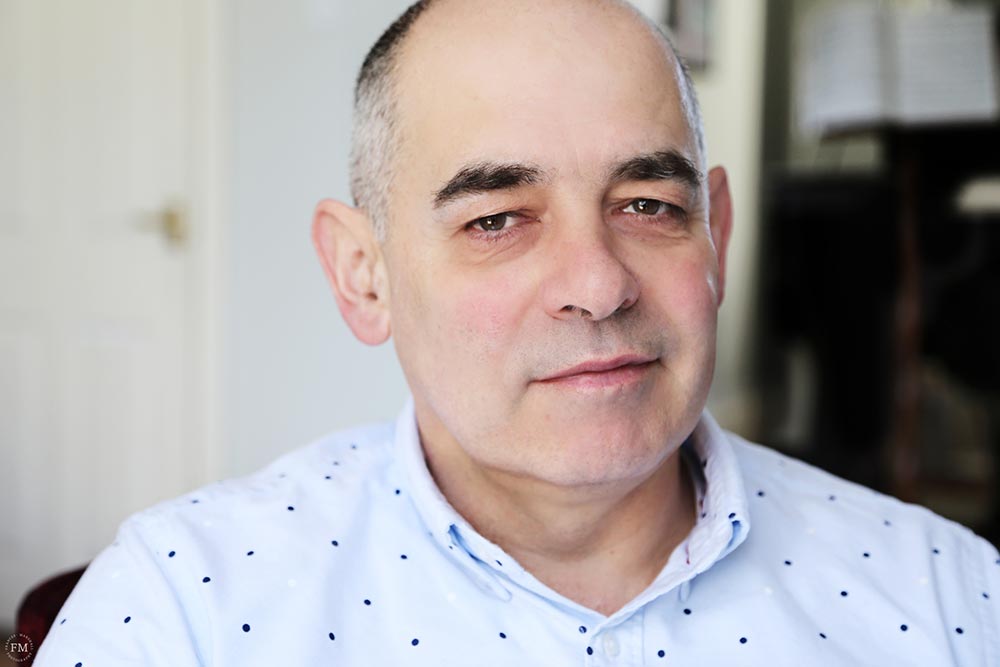


I'm like a kid in a sweet shop. When it's not your day job there's no pressure."

Why did you decide to segue into the realm of writing for theatre, and how did you find the overall experience?
Again it happened by accident, through a quiet evolution: from putting together programmes that combine poetry and music to writing words of my own. I’m still a stumbling amateur, but nevertheless find the writing process wildly enjoyable. I’m like a kid in a sweet shop. When it’s not your day job there’s no pressure.
Do you have any plans to contribute further to this genre?
I like fiddling around with ideas, and inspiration comes from all sorts of unlikely sources. While I’m very full on at the piano for the next few months, after that who knows what a bit of breathing space might produce.
How did the opportunity to delve into the world of broadcasting first present itself to you?
More accidents. I was invited to do some TV work 20 years ago by a friendly producer. She needed a new face and thought I was sufficiently uninhibited to make a fool of myself if necessary. After that, the radio people got in touch. I ran it past my Mum who said, look, you’ve been a bullshitter all your life, you may as well get paid for it. Mums know. I found that I could access my musical background in a different way, and again I loved the diversity of interesting expert colleagues.
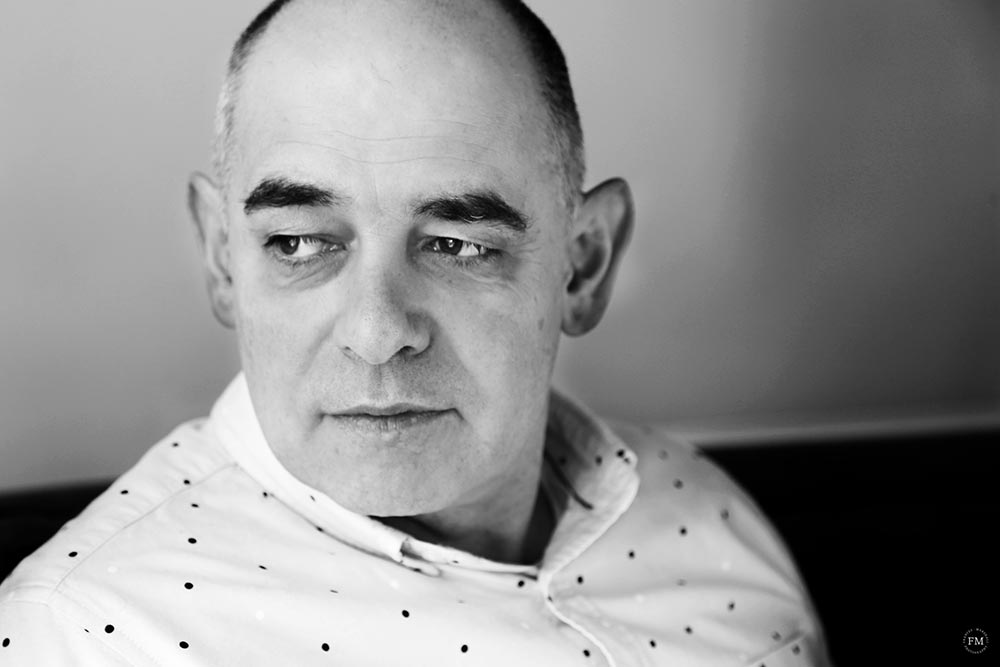


If you had carte blanche to present a television documentary on any aspect of classical music, what would you choose and why?
I’d do a programme about Vladimir Horowitz—not only a pianistic Titan but also a complex man living through changing times.
You enjoy a wonderfully versatile career as a pianist, writer, broadcaster, teacher, adjudicator, and animateur — what do you like to do in between?
Digging my garden is very therapeutic—all those repetitive chores give your brain time and space to tick over, and I always come back into the house feeling more energised than when I went out. Watching things grow is one of the great joys of life.
What score is currently on your music stand?
60 Songs by Nicolai Medtner. It’s the follow-on project from Rachmaninoff with the wonderful Scottish company Delphian Records. They’re terrific pieces, including some that have never been recorded before. When you start practising them you find out why—awfully hard, a million notes.
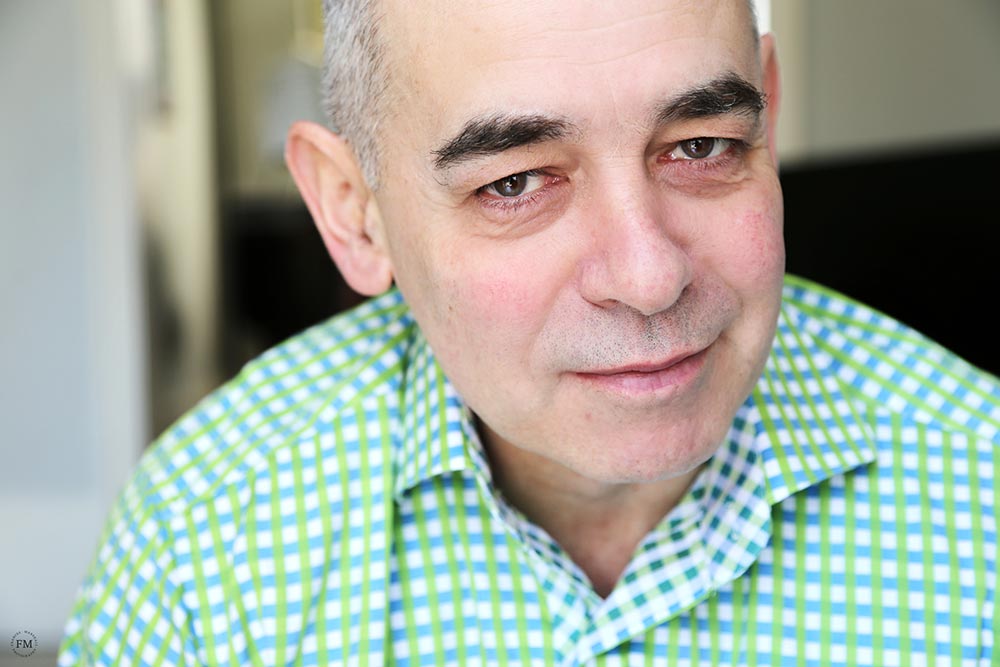

Tell us about your involvement in the recent collaborative project with Guildhall, Juilliard, and the RIAM: ‘Drums and Guns’.
This is a 3-way collaboration bringing together Irish, UK and US singers and pianists. The show explores conflict past and present, through the filters of each nationality. It’s also a joyous excuse to make 12 young people who have never met before sing, dance and act together. It marks my second project with the Irish director Conor Hanratty—a powerhouse of energy, ideas and imagination, and a delight to work with.
From a pedagogical perspective, how have the needs of the singing student altered over the past 2/3 decades?
To be a professional singer now, with any faint hope of a career, you need a gorgeous voice, a buff body, familiarity with 5/6 languages, the ability to learn complex contemporary scores and an ever-smiling, uncomplaining collegial attitude. It doesn’t matter how talented a singer is if they’re needy and a pain to be around. You think it’s an impossible dream until you meet Roddy Williams.
What have you enjoyed most about your time as International Visiting Artist at the RIAM so far?
There is a great buzz there, which hits me every time I get off the airport bus. I’m a huge fan of Deborah Kelleher and Kathleen Tynan—they both have a wonderful ‘Can Do’ approach and they’re doing a terrific job.
What’s next for you?
A wee lie down, then it’s back to bloody Medtner.
Future releases include: DCD34170: Der Wanderer: Schubert Lieder|| Roderick Williams and Iain Burnside.
To find out more about Iain Burnside see:
www.askonasholt.co.uk/artists/accompanists/iain-burnside
All images displayed in this article are subject to copyright.
Share this article


